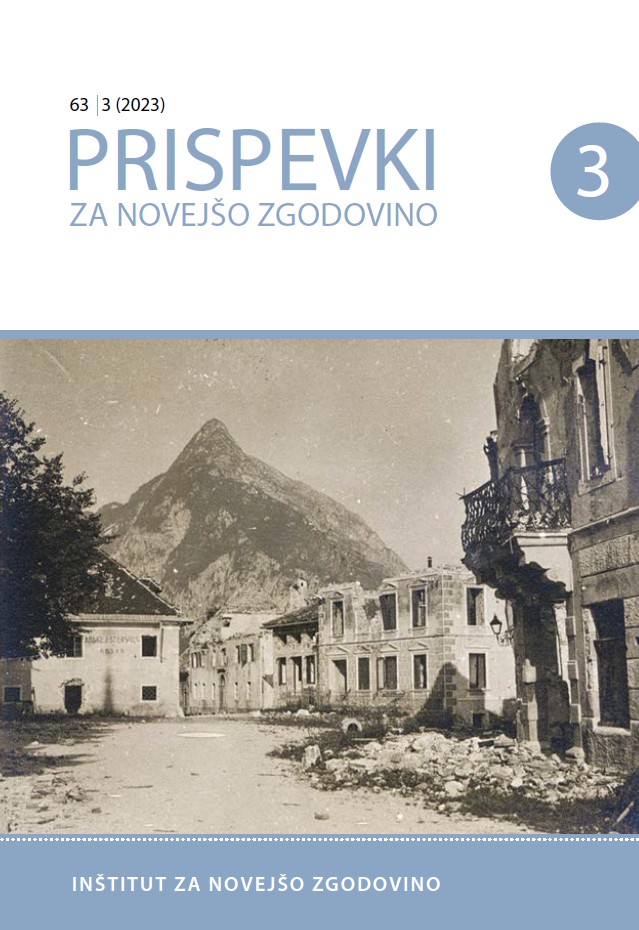Organizacijski ukrepi in naloge Rdečega križa Slovenije po drugi svetovni vojni
Organisational measures and tasks of the Slovenian Red cross after World War II
Author(s): Darja KerecSubject(s): Economic history, Military history, Social history, Welfare services, WW II and following years (1940 - 1949)
Published by: Inštitut za novejšo zgodovino
Keywords: Slovenian Red Cross; World War II; reconstruction; UNRRA; collection campaigns; work brigades; Free Territory of Trieste; Yugoslavia; infectious diseases; natural disasters;
Summary/Abstract: In all the decades following World War II, the Slovenian Red Cross (RKS) acted in a socially responsible manner, according to international principles of humanity and solidarity, and in all areas where immediate assistance was needed. Its actions were based upon the achievements of the national liberation struggle and its fundamental principles, organisationally adapted to the needs of post-war reconstruction. This entailed direct repatriation assistance and aid provided by work brigades, money, and material resources (also in Zones A and B until the creation of the Free Territory of Trieste). The RKS contributed to the rehabilitation of the environment and the construction of infrastructure for the needs of the civilian population and for restarting the economy. Similarly, as today, in the years leading up to the Slovenian independence, the RKS actively participated in and assisted during various collection campaigns. It contributed to healthcare (blood donations, medical courses, prevention and vaccination campaigns), social welfare (assistance to vulnerable groups), and education (young members, volunteering, prevention, and first aid). In cooperation with the Civil Protection Service, the RKS takes action and provides assistance during natural and other disasters.
Journal: Prispevki za novejšo zgodovino (before 1960: Prispevki za zgodovino delavskega gibanja)
- Issue Year: 63/2023
- Issue No: 3
- Page Range: 65-92
- Page Count: 28
- Language: Slovenian

